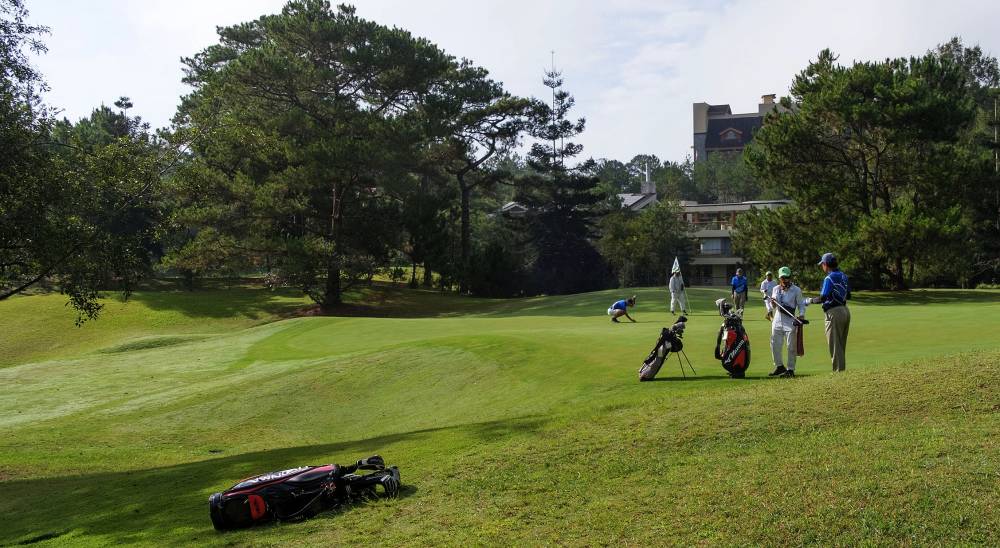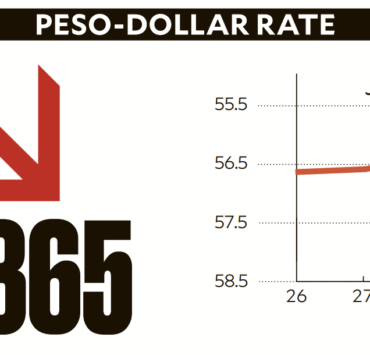Baguio execs renew bid to collect P 200M in John Hay revenue

BAGUIO CITY—Camp John Hay is once again in the crosshairs of the city’s newly elected leaders, who have resumed efforts to collect over P200 million in revenue shares from the former American rest and recreation base, now managed by the Bases Conversion and Development Authority (BCDA).
Mayor Benjamin Magalong, who won his third and final term in the May 12 elections, sent a renewed notice on June 18 to BCDA president Joshua Bingcang regarding the agency’s outstanding obligations. These include P56.843 million in unpaid shares from the “gross income of operations within the John Hay Special Economic Zone” and P168.608 million in net shares from all economic activities there.
Unlike other cities hosting former American bases, Baguio is entitled to a 25-percent share of lease rentals paid by Camp John Hay’s previous developer, Camp John Hay Development Corp. (CJHDevco), owned by businessman Robert John Sobrepeña.
This entitlement is one of 19 conditions set by the city council on behalf of Baguio residents in 1994 when it endorsed the commercialization of Camp John Hay.
Condition No. 10, or the 25-percent allocation, is described as additional earnings “to be used for development projects,” while Condition No. 9 entitles Baguio to 3 percent of the economic zone’s gross income and another 1 percent for a community development fund jointly administered by the city and the BCDA.
Under review
A second letter by Magalong and transmitted to Bingcang also on June 18 urged the BCDA to provide “definitive confirmation” of the 19 Baguio conditions.
The BCDA has yet to respond to the city’s latest requests.
But Bingcang earlier told Baguio reporters that these 31-year-old conditions were under review to determine whether any of the city’s original demands conflict with current laws.
At the start of 2025, the BCDA acquired full control over the former John Hay Air Station and its surrounding forest reserve, following a Supreme Court order that reinstated a 2015 arbitral ruling voiding the 1996 lease development contract over 247 hectares of the former American base.
The BCDA has since contracted several companies to serve as interim managers of the businesses it took over from CJHDevco.
A government source, who asked not to be identified due to lack of authority to speak to reporters, also noted that the delay in action involved the legal implications of the arbitral ruling.
In an April 5, 2021, session of the city council, then BCDA officials, including Aileen Zosa—appointed BCDA president in 2022—addressed the ruling’s impact on the city’s revenue shares and the 19 conditions.
For example, the BCDA said the city must consider the possibility that “the remittance to the City of Baguio of the 25-percent share … is now bereft of legal basis because of the rescission of the lease agreement between CJHDevco and [the] BCDA.”
Development plan
Magalong’s letters clarified that securing a firm position from the BCDA regarding the 19 conditions is not meant to “revive the once combative relations between the city government, [estate manager John Hay Management Corp.] and the BCDA.”
Instead, he said, it would help Baguio and the BCDA move forward in addressing future development plans for Camp John Hay.
During the ceremonial oathtaking of the city’s elected officials on Monday, Baguio Rep. Mauricio Domogan said he returned to public office “to continue to fight for the 19 [conditions] as clearly outlined in Baguio City Resolution No. 362, series of 1994.”
Domogan, who served as mayor and the city’s lone representative in Congress, emphasized Condition No. 14, which calls for the “exclusion” of 14 barangays that developed within Camp John Hay during the time it was governed by the American military.
Speaking later to reporters, Domogan said he would pursue legislation that would grant Baguio custody of all Camp John Hay barangays, including public roads, structures and open spaces used by residents.
Only Barangay Scout Barrio—one of the first communities to emerge while Camp John Hay was under American control—was deemed segregated when the BCDA released land titles to residents in 2000. However, the agency retained control over Scout Barrio’s school and roads, prompting residents to claim that the BCDA had not fulfilled Condition No. 14.
Domogan also cited Condition No. 16, which requires the BCDA to relinquish Camp John Hay’s developed properties to the city “upon the expiration of the land lease agreement between the BCDA and its designated developer.” Magalong made the same appeal to the BCDA in December last year.

















